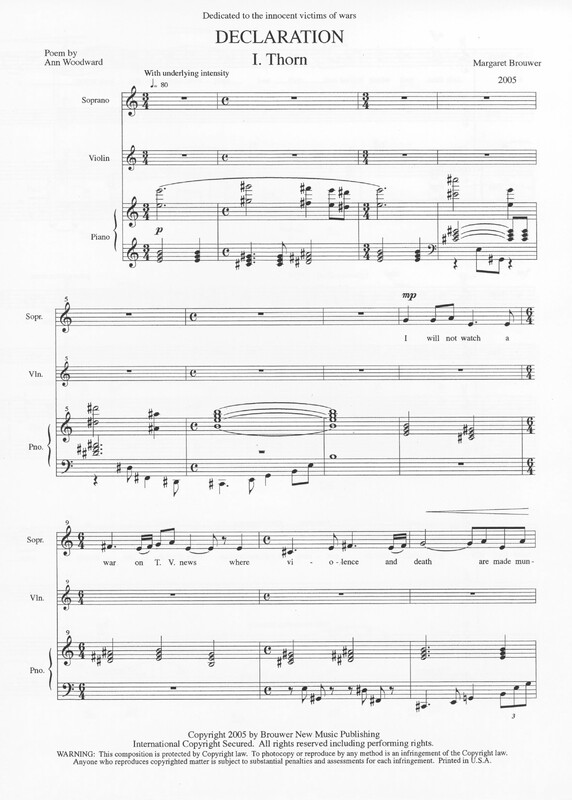-
Score title
-
Declaration
-
Composer
-
Margaret Brouwer
-
Date
-
2005
-
Instrumentation
-
Soprano voice, violin, piano
-
Program note
-
Declaration is a set of songs addressing violence and war. The first and third songs look at the inhumanity of war in different ways. Ann Woodward points out in the poem of the first song, Thorn, that one can watch the tragic details of a war on TV as if it were a story and not a representation of real people being killed. The poem of the third song, Thousands of Feet Below You, by Alice Walker portrays the terror of an innocent young victim running from a bomb. In the first song, the theme of the basic commonality of all human beings threads through Woodward’s poem, Thorn. The second song, …all men and women…, continues this theme with an excerpt from the Declaration of Independence about the equality of all. The fourth song, Whom do you call angel now? is a song of mourning. It was taken from a set of poems by David Adams called September Songs which he wrote after September 11.
Thorn and Whom do you call anger now? were originally intended to be folk songs. In the end, I decided to make them an integral part of this song cycle. In fact, these two songs were written first. However setting these works as art songs proved to be a real struggle. After trying a plethora of possibilities, I decided the strongest presentation would be to leave the accompaniment simple, even stark at times. The 21st century is a time of plurality in musical styles. The past periods of music are available for composers to draw upon, including the atonal period which lasted for the entire twentieth century (and is still going on). I am exploring this rich referential diversity in my music. Whereas the first and fourth songs are tonal and quasi folksong-like, the fury of Alice Walker’s poem, Thousands of Feet Below You called for strict twelve-tone treatment.
This song cycle is in memory of our young people who have given their lives or limbs, and of the babies, children and civilians (just trying to go about their lives) who have died in war.
 Margaret Brouwer
Margaret Brouwer


